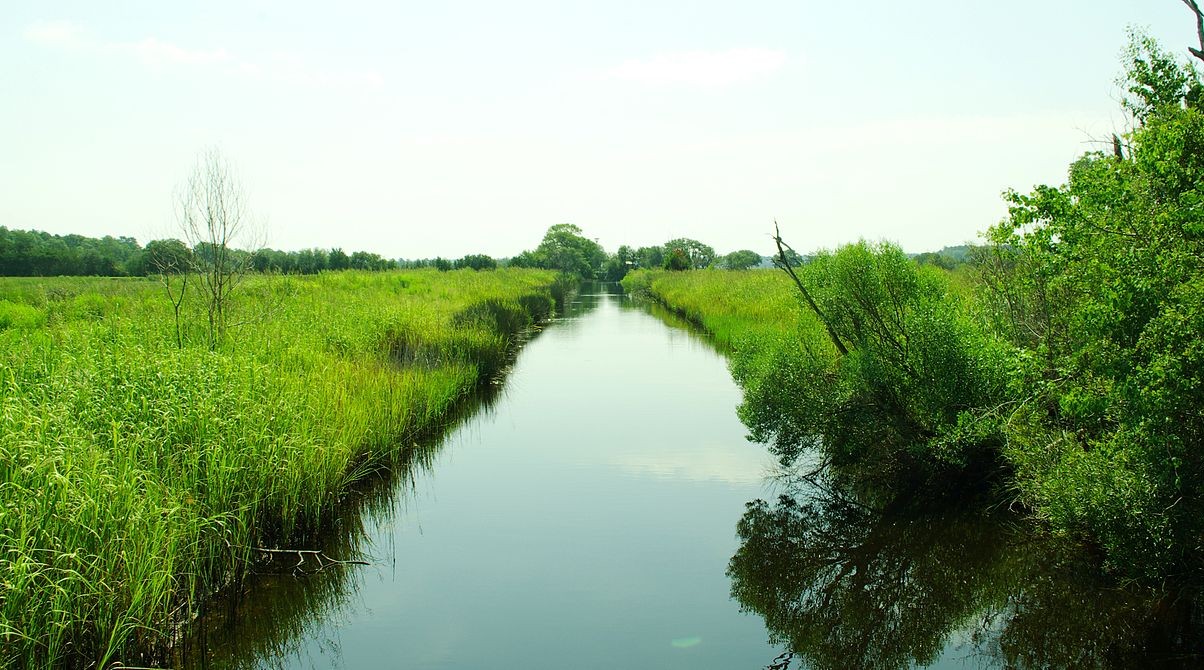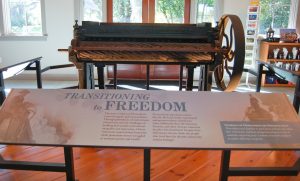NOV. 18, 2019 | Two historic Charleston County parks are now internationally-recognized “Sites of Conscience” by a worldwide network of 230 sites in 55 countries.
According to a press release from the Charleston County Park and Recreation Commission, Caw Caw Interpretive Center in Ravenel and McLeod Plantation Historic Site on James Island are now part of the International Coalition of Sites of Conscience — places that confront the history of what happened at the site and lasting impacts.
“You have done great work already reimagining the historic plantation experience and we are eager to be a part of your continued journey,” International Coalition of Sites of Conscience Executive Director Elizabeth Silkes wrote in a letter to the parks commission.
According to release, “Sites of Conscience ‘face all aspects of history and also activate the historical perspective with dynamic public dialogue on related issues we face today and what we can do about them.’ Sites of Conscience are places that interpret history, engage the public in programs that stimulate dialogue on pressing social issues, share opportunities for public involvement and positive action on the issues raised at the site, and promote justice and universal cultures of human rights.”
Caw Caw Interpretive Center, which opened in 2000, explores the impact of people from the rice-growing regions of Africa on the landscape, history and culture of the Lowcountry region. The site was once part of several rice plantations and home to enslaved Africans who applied their technology and skills in agriculture to carve the series of rice fields out of cypress swamps.
It also is a site of the 1739 Stono Slave Rebellion, the largest uprising of enslaved people in English North America, the commission said. Visitors to Caw Caw investigate the origins of Gullah-Geechee culture and the profound influence of Africa on the Lowcountry and Charleston. Caw Caw is currently undergoing evaluation for listing as a National Historic Landmark and inclusion as a central feature of Charleston’s application for World Heritage Site designation.
The commission opened McLeod Plantation as a public county park and historic site in 2015. Located on James Island, McLeod Plantation Historic Site is a former sea island cotton plantation and an important 37-acre Gullah-Geechee heritage site carefully preserved in recognition of its cultural and historical significance.
“After years of careful research and restoration, the historic site today is a living tribute to the men and women who persevered in their efforts to achieve freedom, equality and justice,” the release said. “Visitors are invited to embark upon an in-depth exploration of the lives of those people whose stories are essential to understanding Charleston’s complex past and helped shape who we, as a nation, are today.”
Shawn Halifax, cultural history interpretation coordinator at the commission, said the county’s park system has been a leader in interpreting slavery and African American’s ongoing quest for equality.
“Recognition of this work resulted in the park system’s ongoing collaboration with the Smithsonian‘s National Museum of African American History and Culture to deliver training designed to prepare museums and historic sites around the nation to ethically interpret slavery and its legacy.”
Other regional Sites of Conscience include the Museum of Education at the University of South Carolina, the Levine Museum of the New South in Charlotte, the National Center for Civil and Human Rights in Atlanta, Thomas Jefferson’s Monticello in Virginia and the Birmingham Civil Rights Institute. For more information on McLeod Plantation Historic Site or Caw Caw Interpretive Center, visit CharlestonCountyParks.com/McLeod or call 843-795-4386.
- Have a comment? Send to: editor@charlestoncurrents.com





 We Can Do Better, South Carolina!
We Can Do Better, South Carolina!
























